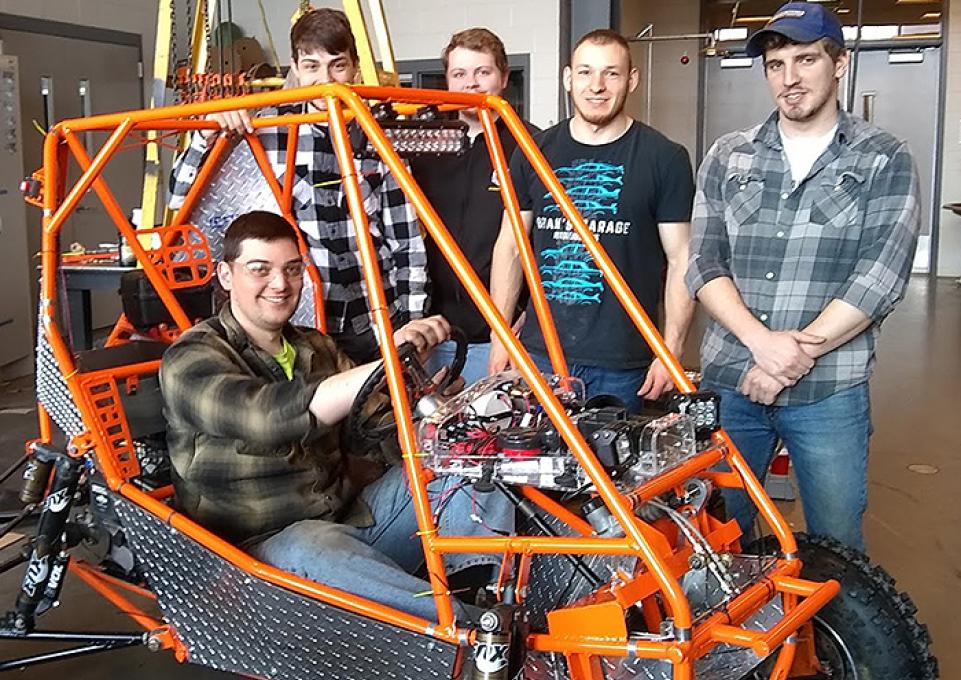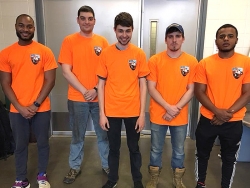
When Ryan Galus transferred to Buffalo State in 2016 as a mechanical engineering major, he sought hands-on experience rather than the theory-based instruction his previous institution provided.
That’s exactly what he found in Buffalo State’s mechanical engineering technology (MET) program. This year as a senior, Galus has gotten the ultimate experience, serving as captain of Buffalo State’s team for the Society of Automotive Engineers Mini Baja Competition, held April 19–22 in Mechanicsburg, Maryland. One hundred teams are competing.
Begun in 1976, the annual competition challenges engineering students to build and race a single-seat, all-terrain sporting vehicle similar to a dune buggy. It’s supposed to be prototype for a reliable, maintainable, ergonomic, and economic production vehicle that serves a recreational user market. During the competition, one student driver takes the buggy through acceleration, hill climb, land maneuverability, and suspension tests and a four-hour endurance race.
The vehicle the Buffalo State team produced sports a Bengals orange frame and is the result of hours of work in the first-floor shop of the Technology Building. The five-student team also has taken turns driving the dune buggy around campus.
“You have two options when you are a mechanical engineering major—Mini Baja or a corporate project,” said Galus, who grew up in Hamburg, New York, and first considered an engineering career in middle school. “This is much more fun.”
Along with Galus, four seniors compose this year’s team, and five juniors are observing and helping construct the buggy so they can apply the skills to next year’s competition.
 “It’s been awesome working with the team and getting experience working with lots of machines, like plasma cutters and mills,” said junior Kevin Carr. “You can see how everything is put together and what tools do what tasks. It’s good to see what works and what doesn’t work.”
“It’s been awesome working with the team and getting experience working with lots of machines, like plasma cutters and mills,” said junior Kevin Carr. “You can see how everything is put together and what tools do what tasks. It’s good to see what works and what doesn’t work.”
The team also had to secure sponsorship to pay for the competition entrance fee and some of the tools. They signed 16 local sponsors including K-Technologies. Keller Technologies Corporation. QTA machining, and Rigidized Metals.
The team created the vehicle’s design in September and began building it in January. The process has included many late nights and trial and error.
“You get a big appreciation for project management,” said Mike Wierzba, assistant team captain. “We had an axle on backward and because we had all the tools on hand and knew what to do, it took about 15 minutes to fix. Before this experience, it would have taken much longer.”
Employers take notice of the skills students acquire preparing for and participating in the Mini Baja, said David Kukulka, professor of engineering technology and MET coordinator. It’s a boon to their resumes.
Galus noted that a few of the companies working with the team have told the students to notify them when they graduate.
“They know we can do the work,” Galus said.
